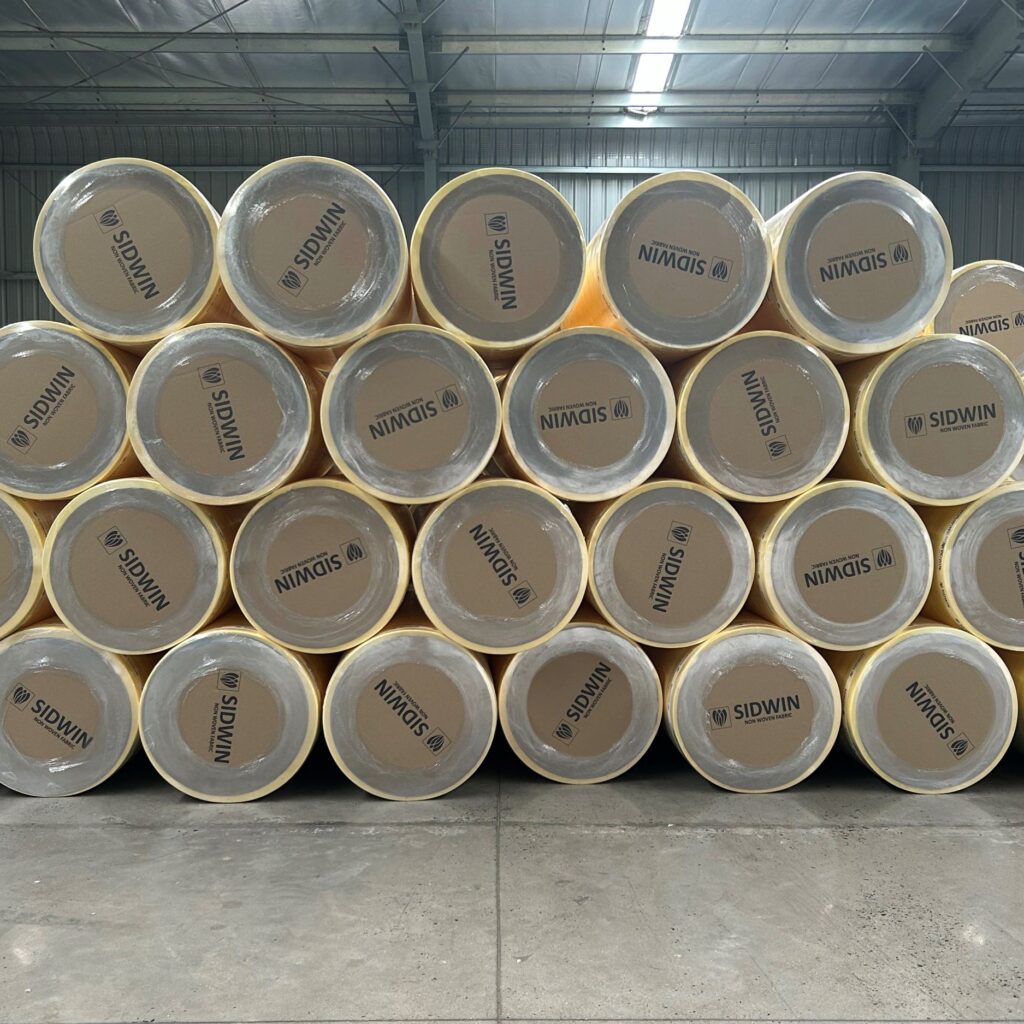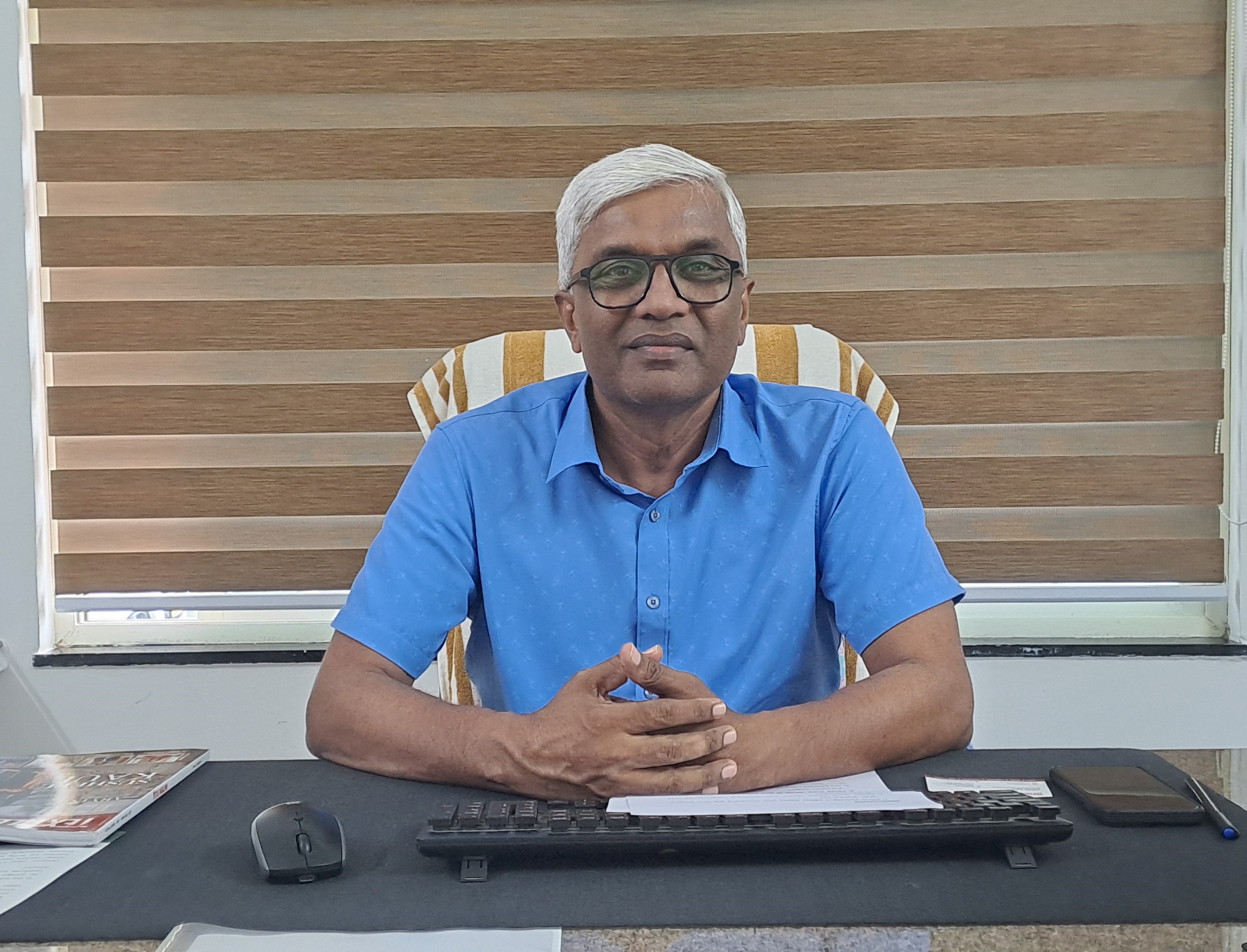Gujarat-based Sidwin Fabrics has revolutionized crop protection for marginal farmers by offering affordable nonwoven fabric solutions. These innovative fabrics provide nearly all the benefits of conventional greenhouses and net houses at a fraction of the cost, allowing farmers with small landholdings to safeguard their crops effectively. This groundbreaking approach not only enhances agricultural productivity but also underscores Sidwin Fabrics’ commitment to sustainable and accessible solutions.

Affordable Crop Protection for Marginal Farmers:
Sidwin Fabrics has emerged as a pioneer in providing crop protection solutions using nonwoven fabrics. According to Mr. Suresh Patel, Director at Sidwin Fabrics, traditional methods like greenhouses and net houses are prohibitively expensive. In contrast, nonwoven fabrics from Sidwin offer a cost-effective alternative at just Rs 35,000 per acre, delivering 90% of the benefits provided by these conventional structures and Sidwin sells them under the brand name of Grow Cover. These fabrics effectively shield crops from climate changes, pests, and animals, ensuring enhanced agricultural productivity.
“We are pioneers in introducing nonwoven fabrics to protect food crops, and now the government is also supporting our efforts. The polymers division of Reliance Industries also helped the company in conducting field trials and creating awareness among farmers about a low-cost solution to protect crops,” said Mr. Patel.
Expanding Horizons: Sidwin’s Journey in Nonwoven Fabrics:
Founded in 2012, Sidwin Fabrics initially ventured into producing carry bags from nonwoven fabrics. This success laid the foundation for their foray into spunbond nonwoven fabric production at a time when the technology was still in its infancy in India. “We saw immense potential and opportunities to progress in this field. We conducted surveys and visited various countries to explore different nonwoven technologies,” Mr. Patel shared.
Sidwin invested in a 3.2-meter width double-beam technology nonwoven production line with a capacity of 450 tons per month. This move positioned Sidwin as one of the early adopters of this technology in Gujarat and India. The company received an overwhelmingly positive market response, leading to capacity expansions. By 2019, a second production line was installed, and despite the onset of the COVID-19 pandemic, Sidwin adapted to the increased demand for medical textiles, including PPE kits and masks.

In 2021, Sidwin expanded further with the installation of a third production line known as an SSMS line, primarily for producing nonwoven hygiene fabrics and medical health care fabrics. With this addition, the company’s production capacity increased to 1,000 tons per month.
Diverse Applications and Customization:
Sidwin Fabrics generates significant revenue from the medical and hygiene segments, followed closely by agriculture. Mr. Patel emphasized the vast potential within the agriculture sector, highlighting the limited focus on crop protection despite widespread awareness of green and net houses.
Sidwin also provides customized nonwoven fabrics for industrial applications, such as anti-static and fire-retardant fabrics, as well as those with hydrophobic properties. Collaborations with Excellence Centres like MANTRA, ATIRA, SITRA, and BTRA have facilitated the design and development of tailored products. Sidwin also tested its new innovations at the testing labs of these institutes.

Direct exports account for 20% of Sidwin’s business, with indirect exports making up 70%. Domestic buyers convert Sidwin’s fabrics into various products for export to countries including the US, several European nations, the Middle East, Nepal, Sri Lanka, and Bangladesh. Mr. Patel noted a growing preference among foreign importers for Indian exporters over their Chinese counterparts, driven by the China+1 policy and post-COVID-19 dynamics. Sidwin Fabrics has positioned itself to compete effectively with Chinese manufacturers in global markets.
Commitment to Sustainability and Innovation:
Sidwin Fabrics holds the prestigious Oeko-Tex certification, obtained five years ago, making it one of only a few Indian nonwoven fabric producers with this accolade. The demand for Oeko-Tex certified fabrics primarily comes from European countries. These fabrics are produced on demand, using compliant additives and inputs.
Sidwin is also committed to sustainability and renewable energy. The company sources 70% of its electricity from solar and wind power, with a target of achieving 100% renewable energy by 2025. Additionally, Sidwin produces Oxo-biodegradable fabrics that offer partial biodegradability. This focus on sustainability enhances the company’s competitiveness in the market.

Government Support and Future Prospects:
Sidwin Fabrics has benefited from government support in various forms, including subsidies. Nonwovens have been included in the Production Linked Incentive (PLI) scheme, and the government has established BIS standards for nonwoven fabrics. State governments have implemented initiatives to increase the availability of sanitary products in rural areas, boosting demand for women’s hygiene products. The COVID-19 pandemic has further driven growth in nonwoven medical textiles.
The Gujarat state government’s subsidy of Rs 20 crore for nonwoven fabrics used in agriculture is expected to stimulate demand. Mr. Patel expressed optimism that other states will follow suit.
Sidwin plans to increase nonwoven fabric production capacity and venture into converting these fabrics into value-added products. With approximately 20 acres of land, of which, only 6-7 acres are currently utilized, Sidwin has ample room for expansion.
Future outlook
Sidwin Fabrics has positioned itself as a leader in the nonwoven fabrics industry, driving innovation in crop protection and contributing to sustainable practices. The company’s commitment to affordable and accessible solutions, coupled with its focus on customization and quality, has solidified its standing in both domestic and international markets. As Sidwin continues to expand its production capacity and explore new applications, it remains poised for a future of growth and impact in the nonwovens sector.





